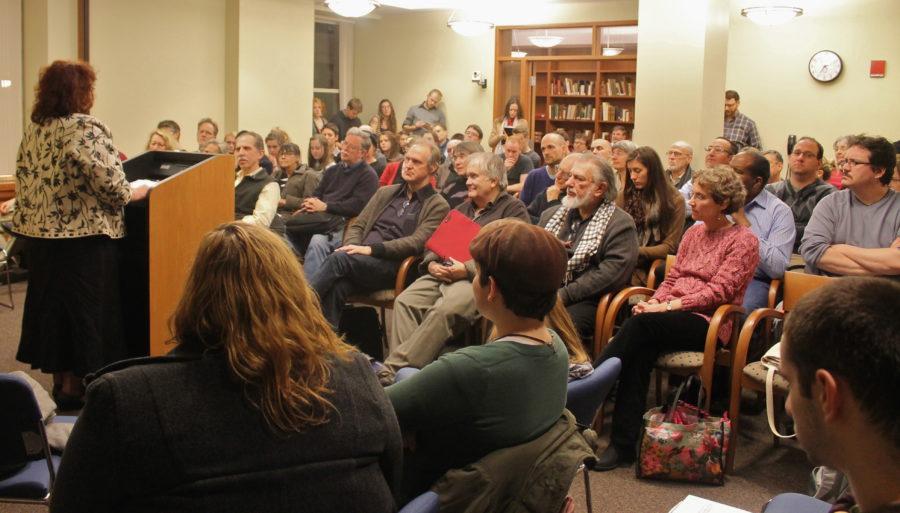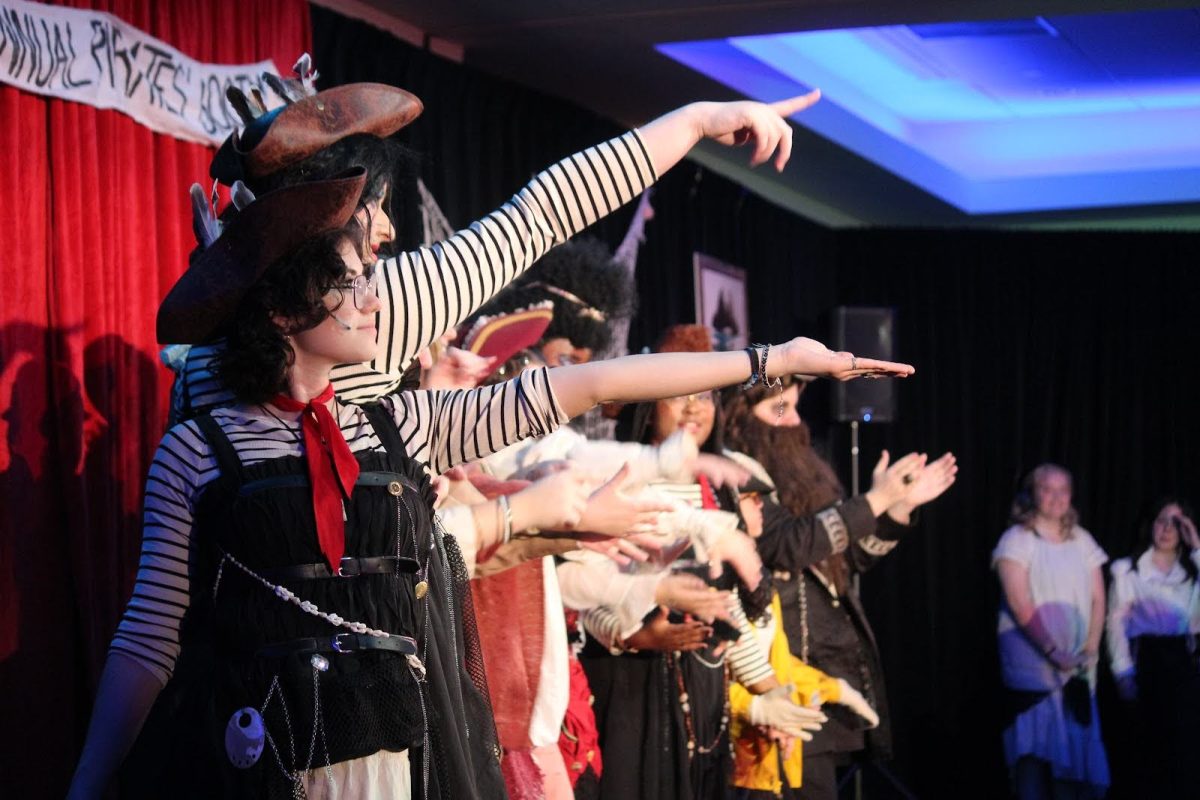Suffolk’s Poetry Center, located on the third floor of the Sawyer library, was packed with students and the general public last Thursday night. In addition to all seats being full before the 7 p.m. start time of the poetry reading event, attendees lined the walls and occupied carpet seating.
As poets Melissa Green and Tom Sleigh drew such a crowd, Professor Fred Marchant expressed pure pleasure with the turnout. Marchant, director of Suffolk’s creative writing track in the English Department and director of the Poetry Center, introduced the two poets.
Green passionately read poems filled with historical and mythical allusions. The Winthrop native’s style evoked a sense of grandeur and eloquence, using old-fashioned adjectives to painstakingly describe every detail in her poems.
In her “Chrismaria” piece, Green puts a twist on the clichéd baptism metaphor as the narrator details watching the salty sea crash over granite and rock. The raw beauty and terrible awe of the scene are masterfully wrapped up in the last line: “I’ve forgotten every prayer I ever knew.”
Green’s works center around creating a dialogue with the past by interacting with the lives and ideas of historical figures. “Prophecy” is inspired by Virginia Woolf’s claim that she heard birds speak to her in ancient Greek as she was descending into madness. “First Snow” uses a Renaissance fresco and its many ornate layers of paint as a metaphor to describe the many layers of life and perception that exist in our world.
The most elaborate of Green’s historical influences are found in her series of poems about Mad Maude. Looking back at the origin of mental asylums, Green pulls the characters Tom of Bedlam and Maude as the original mentally ill and heartsick. The poems tell a story of Maude’s constant searching for her Tom as the two bounce back and forth from mental institutions to freedom.
The story of Tom and Maude becomes a tragic love story of a crazy, mistreated woman who merely wants to be with her lover. Her madness and the abuse she suffers from it at the asylum are cured by her love, as she claims, “my iron chains don’t itch when Tom is here.” Overwrought with symbols of oppression and squalor, Maude longs for Tom: “Waiting in Bedlam/Covered in piss and shame/I wait.”
Next, Marchant introduced Sleigh and what he called his “Homeric” epic poetry. Sleigh, a professor at Hunter College and resident of Brooklyn, has visited Suffolk in the past for a panel discussing the plight of Lebanon after its civil war. As a journalist in southern Lebanon, Sleigh used his observations and insight to compile his poetry book, “Army Cats.”
Sleigh’s poetry features absurdist humor and biting sarcasm that had everyone cramped in the room laughing out loud. In “Army Cats,” Sleigh compares soldiers and tanks to lazy cats lounging in the sun. One cat is so revered by all that the audience finds the devotion to it ridiculous as Sleigh claims, “women lift up their skirts as she drifts down the Nile.”
In his next poem, Sleigh shifted from the far away war to his own childhood. “Self-Portrait with Shoulder Pads” details a fight he and his twin brother were forced to have during a high school football team practice. The audience burst with laughter as the poem depicted his old coach yelling, “Timmy hit Tommy/Tommy hit Timmy.”
“Spacesuit Set Adrift” uses an abandoned astronaut suit in outer space as a metaphor for growing old. Sleigh describes the suit being cast out from a rocket ship and its slow descent out to deep space. The suit goes through a life cycle as a human would.
“How she loathes infinity,” the narrator says, as the space suit is destined to roam around space forever alone. “She dreams of a mothership, of gravity,” Sleigh says of the suit, but she never finds either to anchor her again.
The poetry of Sleigh and Green, although stylistically different, was a hit with the audience as the room seemed to fill even more after the reading ended. Fans rose to meet the poets and look at some of their books for sale. The Poetry Center remained occupied for at least another hour before people cleared out to await the next reading.














